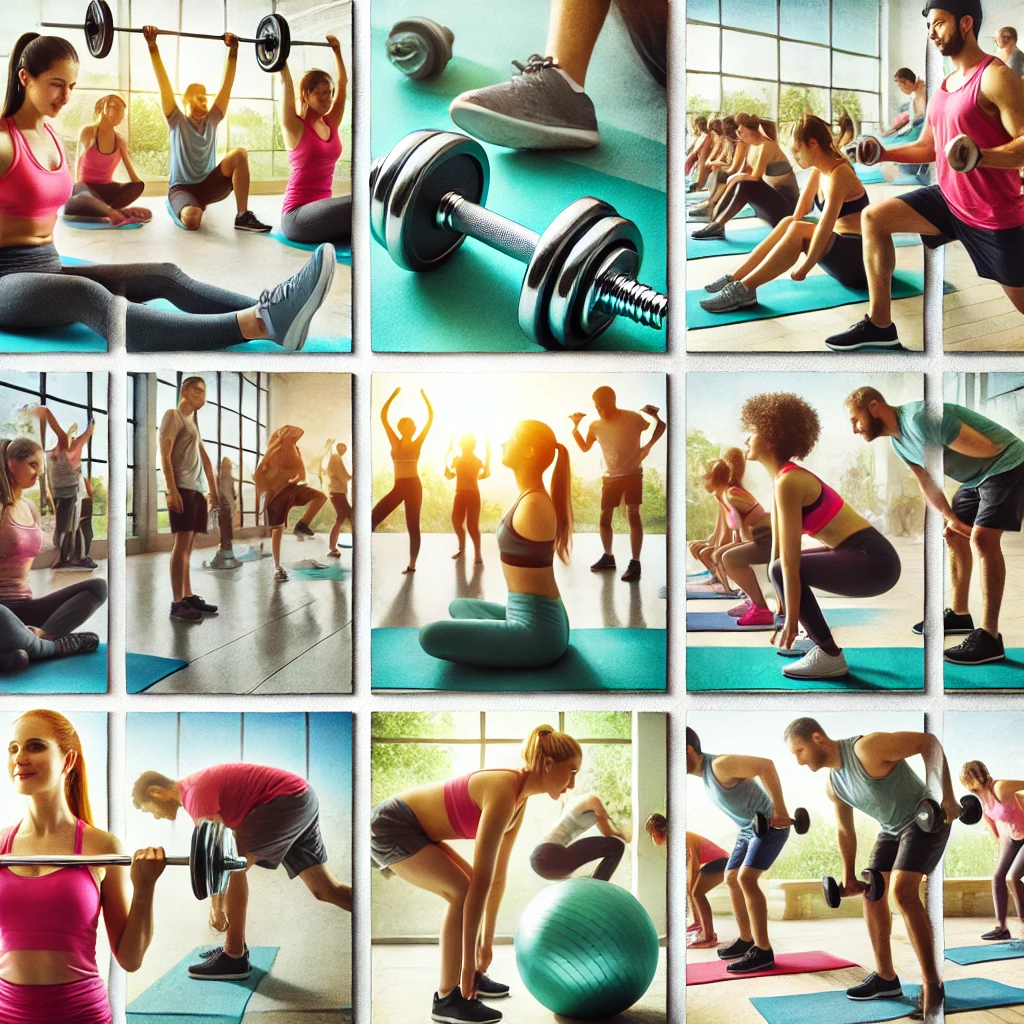The Importance of Regular Physical Activity for Overall Health
Regular physical activity is a crucial component of a healthy lifestyle. It has numerous benefits for both physical and mental health, improving quality of life and reducing the risk of chronic diseases. In this article, we will explore the various benefits of regular exercise, types of physical activities, and tips for incorporating more movement into your daily routine.
Benefits of Regular Physical Activity
-
Improves Cardiovascular Health:
- Regular exercise strengthens the heart, improving its efficiency and reducing the risk of heart disease.
- It helps lower blood pressure and cholesterol levels, contributing to better heart health.
-
Enhances Mental Health:
- Physical activity releases endorphins, which are natural mood lifters.
- It can reduce symptoms of anxiety and depression and improve overall mood and mental well-being.
-
Supports Weight Management:
- Exercise helps burn calories and build muscle, aiding in weight loss and maintenance.
- It boosts metabolism, helping the body process food more efficiently.
-
Strengthens Bones and Muscles:
- Weight-bearing exercises, such as walking and strength training, increase bone density and reduce the risk of osteoporosis.
- Regular physical activity helps maintain muscle mass and strength, which is essential for overall mobility and function.
-
Boosts Immune Function:
- Moderate exercise can enhance the immune system, making the body more resistant to infections and diseases.
- It helps flush bacteria out of the lungs and airways, reducing the likelihood of getting sick.
-
Improves Sleep Quality:
- Regular physical activity can help you fall asleep faster and enjoy deeper sleep.
- It regulates the sleep-wake cycle, contributing to better overall sleep patterns.

Types of Physical Activities
-
Aerobic Exercises:
- Activities like walking, jogging, cycling, and swimming increase heart rate and improve cardiovascular fitness.
- Aim for at least 150 minutes of moderate-intensity aerobic activity or 75 minutes of vigorous-intensity activity per week.
-
Strength Training:
- Exercises such as weight lifting, resistance band workouts, and bodyweight exercises build muscle strength and endurance.
- Include strength training exercises for all major muscle groups at least two days a week.
-
Flexibility and Balance Exercises:
- Stretching, yoga, and Pilates improve flexibility, balance, and coordination.
- These activities help prevent injuries and enhance overall physical performance.
-
Recreational Activities:
- Engaging in sports, dancing, hiking, or other recreational activities can be a fun way to stay active.
- These activities often combine elements of aerobic exercise, strength training, and flexibility.

Tips for Incorporating More Physical Activity
-
Set Realistic Goals:
- Start with achievable goals and gradually increase the intensity and duration of your workouts.
- Consistency is key, so find activities you enjoy and can stick with over the long term.
-
Make it a Routine:
- Schedule exercise into your daily routine, just like any other important appointment.
- Find a time that works best for you, whether it’s in the morning, during lunch, or after work.
-
Stay Active Throughout the Day:
- Look for opportunities to move more, such as taking the stairs instead of the elevator, walking during breaks, or doing short exercise sessions throughout the day.
- Use a pedometer or fitness tracker to monitor your daily activity levels and set goals to increase your steps.
-
Find a Workout Buddy:
- Exercising with a friend or family member can make workouts more enjoyable and keep you accountable.
- Join fitness classes or community groups to meet new people and stay motivated.
-
Mix It Up:
- Vary your workouts to prevent boredom and work different muscle groups.
- Try new activities or classes to keep things interesting and challenging.
Conclusion
Regular physical activity is essential for maintaining overall health and well-being. By incorporating a variety of exercises into your routine, you can enjoy numerous physical and mental health benefits. Remember to start slowly, set realistic goals, and find activities you enjoy. With consistency and dedication, you can make physical activity a regular and rewarding part of your life.

